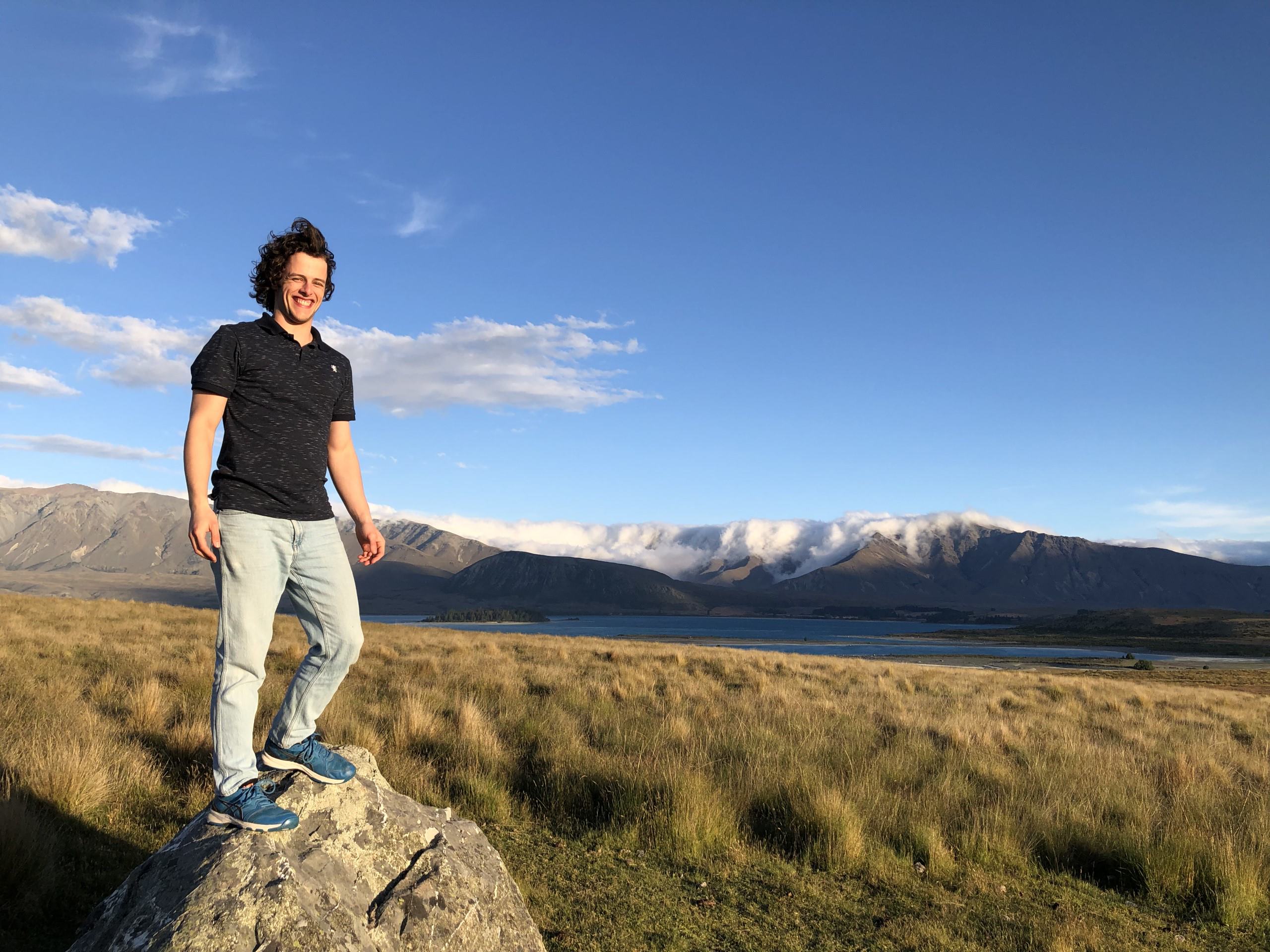
Ask Anna: What is the best hearing solution for otosclerosis?
October 4, 2016
A Visit to the Audiologist – Your experiences and tips
October 5, 2016Q&A with a Phonak Audiologist

Ever wondered how deaf people can become audiologists?
When I visited Phonak’s HQ earlier this year I met Solange Anderson, who works at Phonak and has a background in audiology. After chatting with her, I realised she has a hearing loss. I was fascinated how she became an audiologist and how she overcame her deafness to follow her career. This inspired me to interview her!
Ellie: Hi Solange, thank you for taking the time to do an interview with me. I’m really keen to learn about your role as one of Phonak’s leading audiologists! Can you tell me a bit about yourself and your role at Phonak?
Solange: Ironically, I actually hate to talk about myself. I originally come from the Virgin Islands in the Caribbean. I moved to the US as a teenager and attended university. I have a Bachelors of Arts degree in Biochemistry and Molecular Biology from Rutgers University and a Masters Degree in Audiology from Southern Connecticut State University. After completing my audiology degree, I worked in private practice doing everything from diagnostics to hearing aid fittings, etc. I then wanted a new challenge and moved over to the hearing aid industry.
In 2007, I joined the Phonak US team as the pediatric sales representative for the Northeast, responsible for 7 states. After 5.5 years, I moved to Headquarters in Switzerland where I had the honor of working as the Global Pediatric Audiology Manager for several years. I then had an opportunity to work on future hearing aid platform development. In the past 4-5 months, I have changed from future hearing aid platform development to software solutions, where I work on the fundamental hearing benefits that the fitting software can deliver. Used by audiologists and hearing care professionals around the world, my role as the audiology manager for software solutions is to make sure that our professionals are able to get the most out of our fitting software and our products to provide benefits to their clients.
Ellie: How long have you worked at Phonak?
Solange: In total, this March 2017, it will be 10 years in the Sonova family.
Ellie: What made you choose a career in audiology?
Solange: I wanted to have a career where I could be an autonomous professional and provide “medically related care” without the restrictions that are present in the current delivery of medical care across the world. In addition, there is a history of hearing loss in the family and having first-hand experience with good and bad service delivery made it all the more meaningful to into Audiology as a career.
Working as an audiologist with hearing loss
Ellie: Do you find that your hearing loss helps or affects your job as an audiologist?
Solange: Initially, when I was in school, my mentors were actually more of a hindrance than a help. When I went to graduate school, there were practically no audiologists or students with hearing loss. It was a time when folks were so focused on what students with hearing loss couldn’t do rather than helping to figure out what we could do and I spend more time breaking down barriers due to their own pre-conceived ideas. Today, as an audiologist with hearing loss, it actually is a huge advantage. I have the opportunity to experience the benefits as well as limitations of technology. This can then be communicated in a much more meaningful way to clients as I have first-hand experience of what these folks are also going through on a regular basis.
Ellie: Do you feel that your hearing loss helps you to understand what other deaf people are going through?
Solange: It absolutely give me an advantage as I can have a “shared experience”. There is nothing like the empathy you can have when you have actually experienced the same benefits, limitations, frustrations, etc.
Phonak technology
Ellie: How can tell if hearing aid/cochlear implant not working if you can’t hear it?
Solange: In graduate school I used an FM system, which had a piece of tubing attached to the microphone. This was a great way to use other technology to allow me to easily and quickly check if things were not working properly. In addition, I have always used a test box and on the ear objective measures that allowed me to easily figure out if something was not working. In the event that I couldn’t tell if something was not working, I always found someone else to do a quick listen and provide feedback so this was never really an issue.
Ellie: Do you find it hard advising deaf people of the right technology choices for their hearing loss?
Solange: To be honest, this is not an issue for me. The key is to look at the entire person as well as their entire support system. I make sure I am fully aware of the family dynamics and the individual’s perspective. Hearing loss, deafness, etc., does not just affect the client, but it is affects everyone around them so it is critical to not only understand their perspective, but also to be very aware and cognizant of any potential topics that may be sensitive.
Ellie: What’s your favourite piece of Phonak technology?
Solange: Good question…it really depends upon the environment. Fundamentally, the hearing aids are my favorite piece. Then, depending upon whether I have a large group, small meeting, listening to music, etc., it changes. I love the flexibility of the Phoank Roger Pen to be able to quickly change from omnidirectional to directional at a table to super directional if there is a lecture. When it comes to streaming music, the Phonak ComPilot II is my favorite. The piece of technology I use almost daily is the PhonakDECT II phone. One thing about the DECT II is that it is the one piece of technology that makes me feel like I am on the same level as my colleagues…there is no need to change a program or do something special…just pick up the phone and the call is streamed directly to the hearing aids. It is the closest to feeling “normal” as you can get.
“It is the closest to feeling “normal” as you can get.”
Ellie: Do you use any technologies to help you do your job? Are any of the technologies different to what other audiologists would use?
Solange: I don’t really use any specific technologies in my job that would be different to what other audiologists would use. I may use the technology slightly differently. For example, when I did diagnostic hearing tests, I used to plug in an FM system into the audiometer so I could better monitor the equipment. I would also give the client in the booth a microphone to wear so that when it came to doing speech testing, I have better access to the signal. I also leveraged speech mapping in all my hearing aid fittings because it was a visual way to confirm what hearing aids were providing for a client. One advantage in working for a hearing aid manufacturer is that I do get the chance to try out new ideas and provide input and this is a huge advantage to get a glimpse of what is actually possible with technology.
Ellie: Do you use any Phonak equipment for yourself?
Solange: Yes…I have a variety of equipment available at home. I have a Phonak TV Link (TV streaming), DECT phone, and also use the Roger Pen in different environments.
Ellie: As Phonak are world leaders in hearing loss technology, is there something you would like to see them develop in the future? (i.e. waterproof hearing aids, or bluetooth hearing aids?)
Solange: My list is endless. The one thing that resonates with me is Phonak’s vision where we are tirelessly looking at developing solutions that enhance the lives of those with hearing loss.
Ellie: You have an active role into the future of Phonak hearing technologies. I love to think about what is possible in the future. Working in a variety of roles inside Phonak, including being a writer for HearingLikeMe.com, has allowed me the ability to be a part of such an amazing experience to see what we can do with technology and where the future is going. Do you feel that your hearing loss is an advantage because you can help them create something that would really benefit other deaf people?
Solange: Absolutely it is a real advantage… I have the amazing opportunity to give input into the future and give insights into the specific needs of clients as well as try out new ideas and/or technologies all of the time.
Ellie: How do you relax from a busy day at work? It must be tiring, especially the amounts of concentration?
Solange: I love that I have the advantage of just turning off the world when I am tired or need some peace and quiet.
Ellie: What advice would you give others with hearing loss who are aspiring of becoming an audiologist?
Solange: Always look for solutions to challenges and use the advances in technology to your advantage. Get in touch with other professionals who have been through the experience of learning to be a hearing care professional with hearing loss and learn how they approached their learning experience.
Ellie: Thank you very much for your time, Solange! It’s been a pleasure to find out more about your role as a Phonak Audiologist. I hope that any other aspiring deaf audiologists out there will be able to achieve their dream career!



